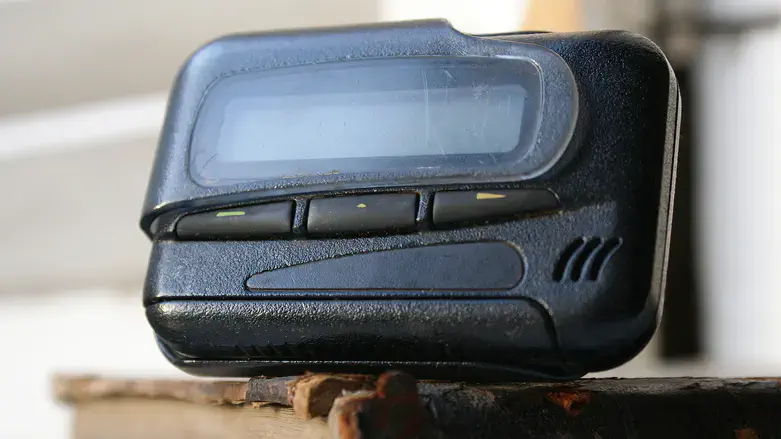
The BAC company, which manufactured the pagers that exploded in Lebanon on Tuesday, was set up by Israel as part of a complex operation, The New York Times reported.
The Hungarian-based BAC held a license to use the Taiwanese company Apollo Gold's branding.
The explosions, which on Tuesday affected pagers and on Wednesday affected hand-held radios, targeted Hezbollah terrorists almost exclusively: Out of over 3,000 injured and less than 40 dead, just four of the victims were allegedly unconnected to Hezbollah - among them the son of a Hezbollah-affiliated Lebanese MP. The son himself, however, had on his person a Hezbollah pager, casting doubts on claims that he was a civilian.
The Times noted that the Wednesday explosions may have involved "more explosives" than Tuesday's.
Israel has neither responded to the explosions nor taken credit for them, but a dozen current and former defense and intelligence officials insist that Israel is behind the explosions, which they deem "attacks."
These officials told the Times, on condition of anonymity, that the operation was long and complex.
Hezbollah leader Hassan Nasrallah in February declared that the Israeli "agents" are the mobile phones held by his operatives and their families, which give away the terrorists' locations. He urged his followers to bury their phones: "Put it in an iron box and lock it."
American intelligence assessed that in Nasrallah's opinion, pagers would be a better option, since they could receive data without giving away the users' location, and were harder to hack.
But according to the Times, even before Nasrallah reached this decision, Israel had begun to set up a shell company to pose as an international manufacturer for pagers. Quoting three intelligence officers briefed on the operation, BAC and at least two other shell companies were created to mask the identities of the pagers' producers.
"BAC did take on ordinary clients, for which it produced a range of ordinary pagers," the Times report stressed. "But the only client that really mattered was Hezbollah, and its pagers were far from ordinary" and produced separately.
Initial shipments of the pagers began in the summer of 2022, but production increased quickly after Nasrallah denounced higher-tech means of communication in February. Thousands of devices arrived in Lebanon over the course of the summer, two American intelligence officials said.
The three intelligence officials also said that Hezbollah and its allies believed that no cellphone communication was safe or truly encrypted anymore, and that both cameras and microphones were being activated to spy on their owners. As such, Nasrallah ordered that Hezbollah orders and plans never be communicated by cellphone, and banned cellphones from the group's meetings; instead, terrorists were instructed to carry pagers at all times, which would be used to issue instructions in the event of a war.
Israeli intelligence officers referred to these pagers as "buttons," the report added. On Tuesday, messages were sent to these pagers, seemingly from Hezbollah's senior leadership; the pagers exploded when the message was opened.

